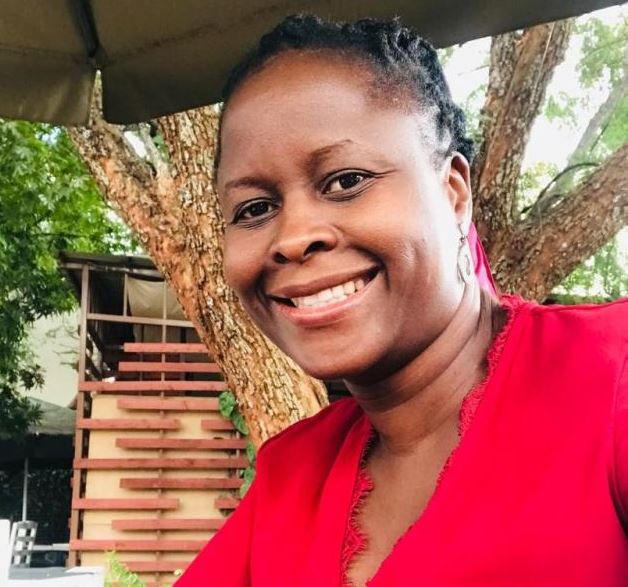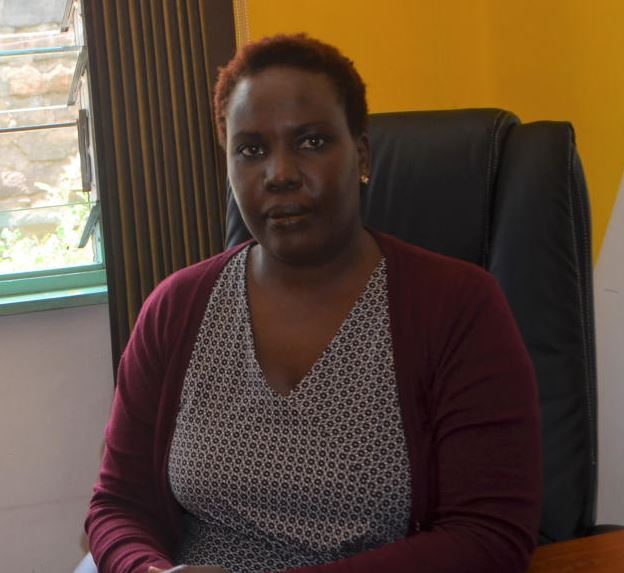 By
Peter Muiruri |
By
Peter Muiruri |
In the middle of a crisis such as the Covid-19 pandemic, it would appear prudent to save every coin rather that jump headlong and invest your savings. With so many unknowns, such a move might appear risky. However, there are some who seem to have been born twins with optimism.
At the height of this crisis, they have defied the naysayers and
cast their nets into the turbulent waters of business. The businesses
may not have yielded the expected returns yet, but going back is not an
option. How did they do it? Joyce Lukwiya
Joyce Lukwiya
I capitalised on the growing oil industry
Joyce Lukwiya, Partner at Wasili Cabs
After working for two years as a communication officer in the oil industry, I got a redundancy letter in February this year. Then Covid-19 came in March and I knew there were no good prospects trying to get back into employment.
Read More
- 1 MansaX records annualised return of 23.3 per cent
- 2 I regretted leaving my job for business
- 3 Valencia blame lack of signings due to Sh13 billion fall in revenue
- 4 Alarm as 10 HIV drugs out of stock
Fortunately, I had a business idea that I had developed earlier and this was the ideal time to go full throttle. Back in December last year, I had registered a car with a Nakuru-based taxi hailing company, Wasili. Now I wanted to get involved in the business itself.
How I did it
March found me out of work and now battling a pandemic like many other Kenyans. Some sat and waited for the wave to pass but it did not. That too was an alternative – wait for what we thought was a three-month episode. But I had to do something in the meantime. I took a gamble and went full-time into the taxi-hailing business.
In fact, I opted to ply the trade in Lodwar, one of the remotest parts of Kenya but one that was opening up since the discovery of oil a decade ago. This was a personal choice. In any case, unemployment can be distressing. Entrepreneurship, on the other hand, gives you a sense of purpose.
How I financed the business
I purely relied on my savings. A small taxi hailing cab costs anywhere between Sh500,000 and Sh650,000. Then add the initial maintenance costs, inspection fees and insurance. I also had to install a tracking device for security reasons. Having a car with a small engine capacity for town runs helped manage income and consumption.
Challenges of setting up during Covid-19
I got into the business when movement was limited due to the curfew yet taxi cabs make more money during evening rush hours. I asked myself whether it was a good idea especially when Covid-19 cases were going up. I was anxious when flights stopped. I was anxious when the car broke down and some drivers gave up halfway.
One time, we were making so little I wondered whether it was the right decision. But then I had committed myself in March and there was no going back. It was a calculated risk. I could have waited, saved the money and lived on reduced expenditure. But there will be disruptions every year. However, getting into the transport industry has taught me about vehicle maintenance and the need to service the car periodically, tasks that I never bothered with when I was in formal employment.
Challenges have also taught me to be versatile. For example, when the driver is on his off day, I drive around to look for customers. In any case, I am in Lodwar, a small town with many advantages. First, you get to know people and you are assured of security. However, you have to rectify any mistakes quickly because people know each other and any negative vibes about your business will pass around quickly.
Transitioning between employment and business
It was not an easy transition. Salaries create an illusion and some comfort zone. But I leverage on the strength of being a communication professional, having worked in mainstream media. Coming to Turkana was an exciting opportunity.
I needed to have a positive attitude because the culture is different. It’s being open-minded, qualities I learned from my mother who had several businesses such as running a tyre and a clothes shop. I too, had to bring a challenging idea to Turkana.
If you are going into business in a crisis…
Assess the risks and prepare to mitigate them. For example, elections may bring some violence, how do you mitigate? In transport there will be breakages and need for spares. How would you get the spare parts in a remote region like Turkana? Remember some crisis may not be predictable.
No one is hiring. I had to learn a skill and start a business
Job Kimondo, digital marketer
I have 10 years’ experience as a senior sales manager at a high-end hotel in the city. Then the pandemic happened and with many others, I was sent off on an unpaid leave. With no business coming in and bills to pay, it was time to reinvent myself before the industry picked up again, and hopefully, get a second shot at the industry.
Did you try to look for another stint in employment?
Absolutely yes. I must have over 500 job applications during this season. Of course, few people are employing so I have a pile of rejection letters in my inbox.
You said you reinvented yourself. How?
I used the lockdown time to study digital marketing. I crossed borders to universities for free online courses, mostly on digital marketing. I did the Google fundamentals of digital marketing, communication strategies for a virtual age from the university of Toronto, personal branding from the University of Virginia, and digital marketing from Great Learning.
What business idea came out of this?
Sales and marketing consultant.
I decided to combine my new-found knowledge with my sales and marketing experience to help entrepreneurs, SMEs and fintechs understand how to influence consumer behaviour. Currently, I have regular clients ranging from construction, payment solutions, property management, renewable energy and hair products. I have also created a YouTube channel where I share sales tips.
What are some challenges you encountered on the new venture?
There is little spending power and you can’t sustain a new venture with no income. And a successful venture gives you some degree of satisfaction.
How much did it cost you to set up initially?
Not more than Sh10,000. Remember I had zero income and so I had to minimise costs as much as possible.
You also got into some partnership with your wife. What was it?
With no prior knowledge, my wife started making and selling braided wigs, we agreed she models for herself to save on costs. I started dealing with digital marketing aspect of her business. When available, I would accompany her for deliveries and get paid for it too!
If you were to advise someone in employment, what would you tell them?
You need multiple reliable streams of business. You are a brand
by yourself, work on yourself, package yourself and start. The world is
your playfield, don’t stop the play. Joy Rael Andambi.
Joy Rael Andambi.
I used up all my savings to start
Joy Rael Andambi, owner of Tai Expedition
In 2017, I left employment at the National Hospital Insurance Fund and spent much of the following year furthering my education. Towards the end of last year, I gave much thought to the next phase of my life – getting onto business. I had some side hustles during my time in employment but now I had to fly solo.
How I did it
In March this year, I decided to use my savings from the small hustles and former employment to kickstart my fledgling tour company. I procured all the licences and then, Covid-19 hit home. I had people tell me that I had made a wrong decision.
Some thought I was out of my mind starting a tour company when everybody was engaging the reverse gear and make sure the little savings see them through the pandemic. But Tai Expedition took off, albeit to a slow start. In fact, it was not until this September that we started serious marketing. So far, we have some good responses with some upcoming bookings to the Mara.
How I financed the business
It was difficult setting up set aside finances without formal employment as a backup. Many financiers also fear lending to startups as they cannot tell if these will pick up or not. I had enquired about getting some financial package but backed off, as I too did not know how things would turn out. One can start a modest tour firm with Sh300,000 and grow it gradually. The key is to start with what you have. Fortunately, I had a van that I used to lease out to other firms that I can now use for my own bookings.
If you are going into business in a crisis…
Never get scared of starting a business because you fear losing it all. Just go ahead if you had calculated that the business model was right all along. There are challenges in all businesses so the earlier you start the better. If you wait for the right time, then be prepared to wait for long. Covid-19 may go away but other challenges bigger than the pandemic will crop up. Learn to swim by getting in the water.
hustle@standardmedia.co.ke




No comments :
Post a Comment